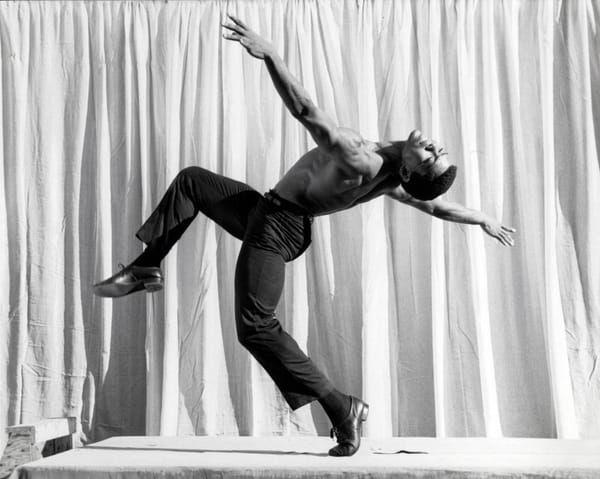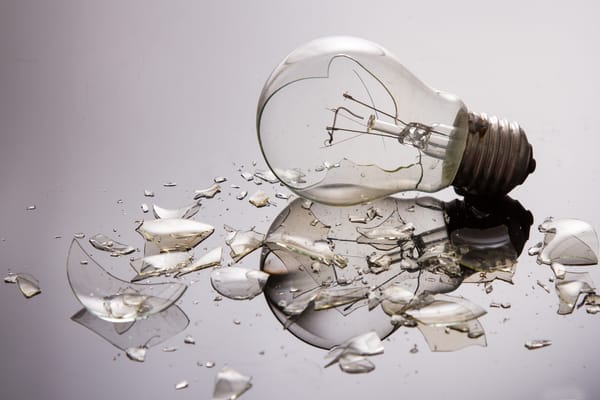What Counts as Technology?
Some thoughts on "what counts" and on the question "what's your favorite technology?"
In my former role as a critic of ed-tech, I was often asked what I think folks thought was a "gotcha" question: "Audrey, what's your favorite ed-tech?" Because if indeed I was “ed-tech’s Cassandra,” they knew I was more apt to prophesy doom than promote some gadget. And true enough, the question did sort of stump me.
It's like asking you take your pick among a handful of Bertie Bott's Every Flavor Beans: the problem isn't just that you could very easily end up with a vomit-flavored jelly. It’s that all jelly beans really do border on vomit-flavor. It's that the whole notion of Bertie Bott is inextricably tied to transphobe J. K. Rowling and is simply not a treat I'd care to comment on, let alone put in my mouth.
I've written several times on Hack Education about the ways in which ed-tech is defined and delimited so that only certain objects "count," so that when people ask "Audrey, what's your favorite ed-tech?" they expect you to give them the name of an app or a piece of hardware. There's an unstated assumption that ed-tech means something digital (and often, something instructional), even though there are many, many technologies used in and around schools that aren't related at all to computers.
Indeed, my go-to answer for "Audrey, what's your favorite ed-tech" remains "the window." If you've ever been assigned to a classroom that did not have windows, you know what a huge difference this particular technology can have on teaching and learning. All the fancy computer gadgetry in the world wouldn't change the fact that being in a room with no natural light *sucks*. It's also indicative of a lot of other structural issues that affect "educational outcomes" — whose schools are window-less? whose classrooms have a lot of sunlight?

In her 1989 CBC Massey Lectures, the physicist Ursula Franklin offered a different definition of technology, one that I use in my own thinking and writing:
Technology is not the sum of the artifacts, of the wheels and gears, of the rails and electronic transmitters. Technology is a system. It entails far more than its individual material components. Technology involves organization, procedures, symbols, new words, equations, and, most of all, a mindset.
This is useful, I'd argue, to keep in mind even as the focus of my work shifts to food and fitness technologies here at Second Breakfast. While I'll certainly write about the digital gadgetry that promises to enhance performance — fitness watches and tracking apps and heart-rate monitors — I'll examine the non-digital as well — "super shoes" and supplements and blood tests and so on.
It's that promise — to "enhance performance" — that helps us see, in Franklin's words, "the system." If we simply look at the gadgets, particularly only those that are sold by technology companies, we can easily lose sight of the larger ideological picture that these technologies are immersed in. How are our fitness practices — ostensibly "leisure" for almost everyone reading this newsletter — shaped by ideas about efficiency, productivity, competition, and individualism, for example?
When it comes to food, one of the dominant narratives in circulation at the moment involves the dangers of "ultra-processed foods." Unlike the promise of fitness technologies to make us better/stronger/faster, these food technologies — some argue, at least (an argument that’s pretty problematic) — are poised to make us weaker/sadder/fatter. And yet all food we eat — no really all food — relies on technology of some sort; almost everything is processed to some degree. Cooking is processing. Adding salt is processing. And that’s okay! (And a subject for another essay, I reckon.)
"Technology involves organization, procedures, symbols, new words, equations, and, most of all, a mindset.” — Ursula Franklin
If we want to untangle the ways in which fitness culture and food culture have been consumed by diet culture, by white supremacy, by capitalism, and so forth, it's imperative we think about technologies as ideological practices not just futuristic gadgetry. So when I talk about technology here at Second Breakfast, you have to imagine me making very sweeping gestures with my hands — because there's history and philosophy here, not just "science" (and OMG so much pseudoscience) enmeshed in our society's attempts to discipline our bodies and minds.
I don't really have a good answer yet for the question of "what's your favorite fitness technology?" Nothing thought-provoking enough, dammit. The thing that immediately pops into my head is "shoes" — and I'll have much more to say about all the marketing around shoe technology and running. I squatted heavy yesterday, and I will say that damn, I appreciate the clips that hold the plates on the barbell. And as I'm polishing and posting this essay first thing in the morning, when it comes to my favorite food technology, it's definitely everything that goes into turning the coffee bean — roasting! grinding! submerging in boiling water — into my morning beverage. But let's check back in on this question in a chat sometimes, eh? Or I'd love to hear your thoughts too…





